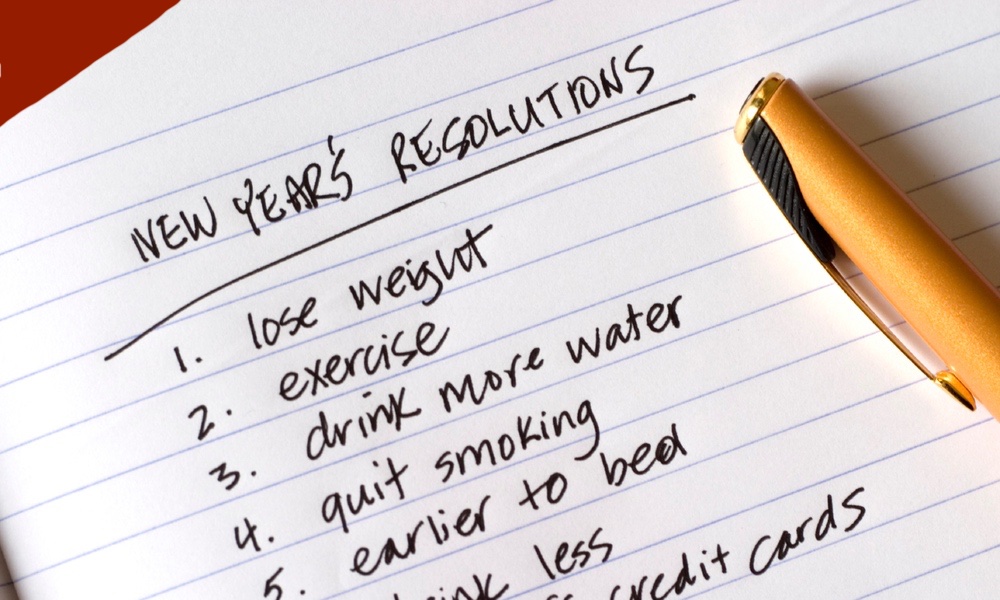Nearly half of us make New Year's resolutions, but only about 25 percent of us actually stay committed to them beyond 30 days. And even fewer, less than 10 percent, accomplish their goals. If you feel you're hanging on by a thread trying to get rid of an unhealthy habit or establish a new one — be patient. A University of South Australia study shows that it takes time — up to 365 days — for a healthy habit to become established.
We all know good-for-us habits such as eating well, getting enough sleep and daily exercise contribute to our overall health. These practices are especially helpful when it comes to combatting common, but serious illnesses such as heart disease and diabetes.
The problem is that letting go of bad habits and forming better ones take time.
The wide-ranging study looked at how we can maintain healthy habits and offers some helpful tips. To come up with them, the Australian research team sifted through six different databases and pulled different studies or questionnaires on self-reported habit forming. In total, the team analyzed data from 2,600 study participants whose ages ranged from around 21 to 73 years-old.We're more likely to stick to a new habit if we make it part of a morning routine. Even then, it took about 106 days for daily morning stretches to become a habit.
They examined several health habits, including physical activity — like daily stretching, increased water intake, taking vitamins, flossing and a healthy diet. Then the researchers followed up, noting the different factors that played a part in successfully forming new habits.
“When trying to establish a new healthy habit, success can be influenced by a range of things, including how frequently we undertake the new activity, the timing of the practice, and whether we enjoy it or not,” Ben Singh, one of the study's authors and a research fellow at the University of South Australia, said in a press release.
The commonly-held belief that it takes only 21 days to form a habit is off-base, they discovered. “In our research, we've found that habit formation starts within around two months,” Singh said. “So, it's important for people who are hoping to make healthier habits not to give up at that mythical three-week mark.”Something as simple as laying out your gym clothes the night before, scheduling a morning walk or preparing a healthy meal ahead of time so it's there and ready to eat when you're hungry, all make it more likely you will stick to your new habit.
For instance, some of the results indicated that it took about 66 days to maintain healthy eating, drinking and exercise habits, while daily morning stretches took about 106 days to achieve and evening stretches about 154 days.
Planning ahead also helps to solidify a new habit. Make sure to incorporate your new health habits into everyday activities. Something as simple as laying out your gym clothes the night before; scheduling a morning walk, or preparing a healthy meal ahead of time so it's there and ready to eat when you're hungry, all make it more likely you will stick to your new habit.
The research also revealed that we're more likely to stick to a new habit if we make it part of a morning routine.
The National Institutes of Health (NIH) adds these suggestions to help us form and stick to healthy habits:
- Plan. Identify unhealthy patterns and triggers. Set realistic goals. Write down steps to help you achieve them.
- Change your surroundings. Find ways to make healthier choices easy choices.
- Remove temptations. Work for changes in your community, like safe places to walk.
- Ask for support. Find friends, family, co-workers, neighbors or groups for support or ask people to join you.
- Fill your time with healthy activities. Try exercise, a favorite hobby or spending time with family and friends.
- Track your progress. Record how things are going to help you stay focused and catch slip-ups.
- Imagine the future. Think about future benefits to stay on track.
- Reward yourself. Give yourself a healthy reward when you've achieved a small goal or milestone, like a massage or personal time.
- Be patient. Improvement takes time, and setbacks happen. Focus on progress, not perfection.
The study is published in Healthcare.





